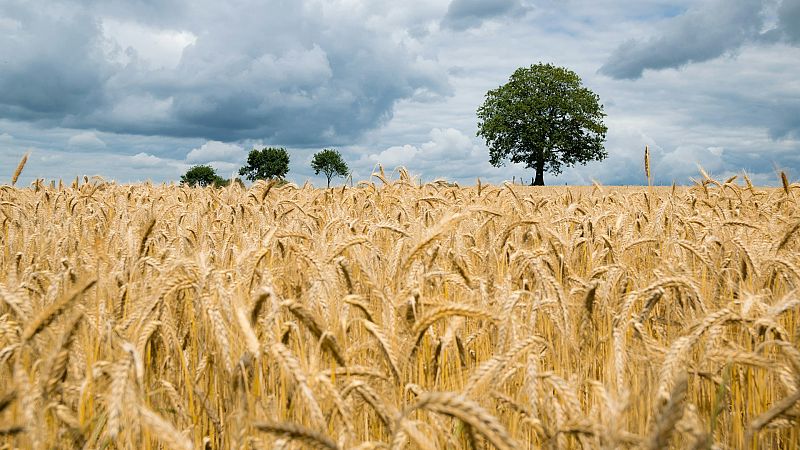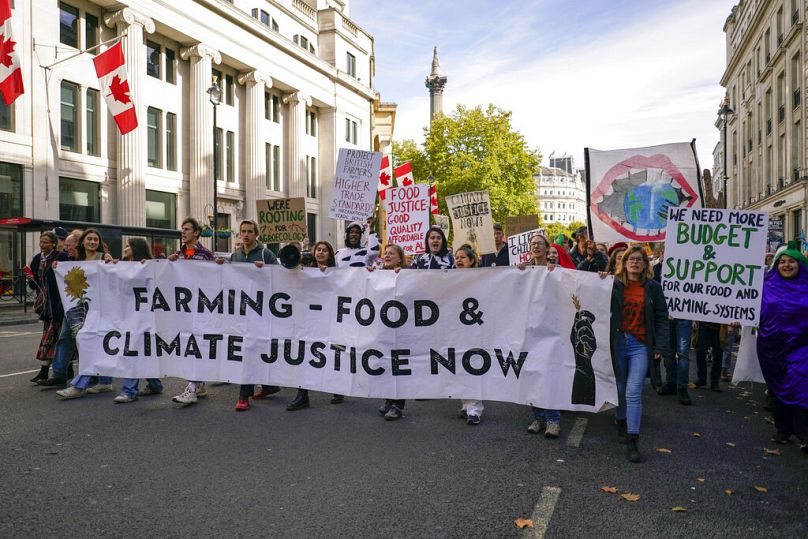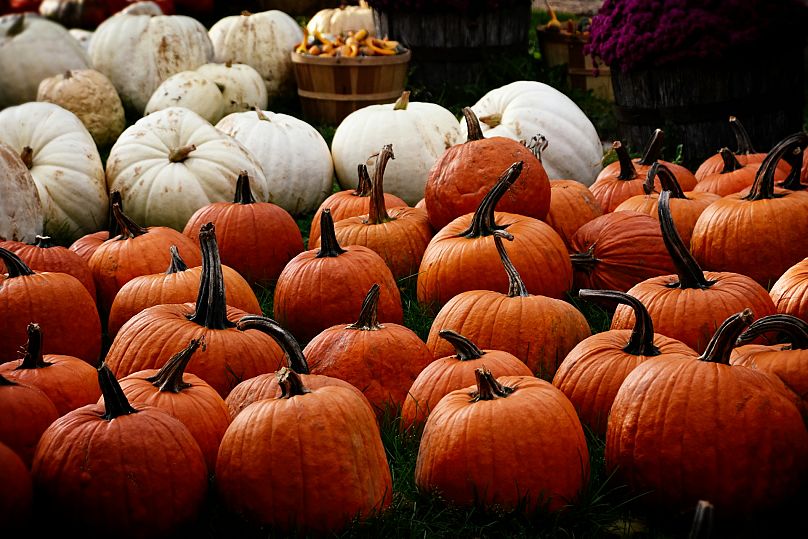As England suffers one of its worst ever harvests ever, what could disappear from shop shelves?

Following almost relentless cold, damp weather, it’s been announced that England suffered its second worst harvest on record in 2024.
New research has shown that heavy rain last winter had a knock-on effect on the production of key crops, including wheat and oats.
Key cereal crops - defined as wheat and oats as well as winter and spring barley and oilseed rape, dropped to the lowest volume in some 40 years, outside of the Covid-19 pandemic in 2020. It’s estimated that farmers could lose £600m (€716m) on those crops alone.
England’s rapidly developing wine industry was hit particularly hard. Producers estimate their harvests are down from about 30 per cent up to 75 per cent, depending on the region.
Now, fears are growing for next year and the impact climate change may continue to have.
What did the research show about climate change’s impact on England’s harvests?
The data came from the government’s Energy and Climate Intelligence Unit (ECIU), in the wake of news that 2023/4’s winter was the wettest on record in England and Wales.
It showed that England’s wheat haul alone was just 10 million tonnes this year - 21 per cent down on 2023 levels, and one of the lowest yields on record.
“This year’s harvest was a shocker, and climate change is to blame. While shoppers have been partly insulated by imports picking up some of the slack, Britain’s farmers have borne the brunt of the second worst harvest on record,” Tom Lancaster, a land, food and farming analyst at the ECIU, said.
“It is clear that climate change is the biggest threat to UK food security. And these impacts are only going to get worse until we reduce our greenhouse gas emissions.”
Lancaster suggested that record rains in September meant the new season was off to a poor start, with farmers forced to hold off on planting in some parts of the country. As a result, many of them lost out on a typically productive winter harvest, as they had to wait until the spring instead.
The ECIU’s research also showed that, as well as food shortages and financial losses for farmers, the poor harvest could see higher costs for consumers, something that could be devastating as the country struggles with a cost of living crisis.
Farmers are holding their breath, too, as 2024’s winter season has begun with record-breaking rain and floods across southern, central, and eastern regions.
What actions are the UK government taking to ease the problem?
The Labour government, which is marking 100 days in power this weekend, has insisted it will 'back British farming', repeatedly stressing the need to improve Britain's food security, especially in the face of worsening climate, environmental, and geopolitical threats.
Speaking in parliament this week, the Environment Secretary Steve Reed said "farming and food security are the foundations of our economy, our communities and indeed our environment".
That won’t come as much relief for many producers and farmers, who are now looking towards the Budget - which lays out the Treasury’s plans for spending for the following financial year - to be announced on 30 October.
Concerning reports suggest that the government might cut the budget for its Sustainable Farming subsidy scheme, which pays farmers and land managers in England to adopt or maintain sustainable farming practices, by £100m (€120m).
Despite a huge hole in the public purse, farmers are concerned that such enormous cuts could easily undermine efforts to develop more sustainable and climate resilient farming practices.
Ahead of the Budget, Tom Bradshaw, the president of the National Farmers Union (NFU), has criticised the government’s “policy paralysis” and urged them to develop a clear food security strategy as well as increasing their budget for agriculture.
"High costs, record inflation, low farm returns and the persistent bad weather has resulted in a collapse in farmer confidence, which is at its lowest level since records began," Bradshaw said in a statement, “This October budget is key to delivering certainty to our food producing businesses, food security and environmental targets, all of which contribute to the government's missions for growth and prosperity."
Halloween may look very different in England due to climate change’s impact
While wine growers have had a difficult season, their stocks from previous years mean the supply won’t be too badly impacted - and that consumers won’t see price hikes.
Pumpkins, though, are a different story.
As a Halloween staple, many pumpkin farmers up and down the country are facing mass failures of the crop.
The heavy rains and unpredictable climate conditions have seen farmers left with very few pumpkins - or, in some cases, hardly any at all.
The pumpkins they have managed to save are smaller than usual, making them less valuable.
“An unpredictable pumpkin harvest may seem a small thing but it’s a big deal for many farmers and an example of how our increasingly unsettled weather is starting to have an impact on food prices and our traditions,” Roger Harding, director of Round Our Way, an organisation supporting people impacted by weather extremes in the UK, told The Independent newspaper.
As Halloween approaches, climate change’s ongoing impact could be the scariest thing of all.
Yesterday



